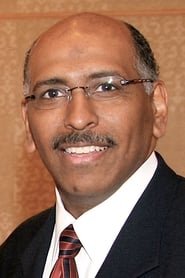
Ask Your Own Question
What is the plot?
The episode opens with host Alicia Menendez introducing the topic of the night: a controversial Supreme Court ruling that has just been released, striking down a major federal environmental regulation. The camera cuts to a split screen showing Menendez, Michael Steele, and Symone Sanders-Townsend seated at the panel desk, each with a monitor displaying headlines and live reactions from social media.
Menendez begins by summarizing the ruling, explaining that the Court found the regulation exceeded the authority granted by Congress, citing separation of powers and states' rights. She notes that the decision is expected to have immediate consequences for climate policy and federal enforcement. Sanders-Townsend responds by highlighting the dissenting opinion, which warns of dire environmental consequences and criticizes the majority for undermining decades of precedent.
Steele then offers a conservative perspective, arguing that the ruling restores balance to the federal system and prevents executive overreach. He points out that several states have already announced plans to roll back their own regulations in response. Menendez presses him on whether this could lead to a patchwork of environmental standards, and Steele acknowledges the possibility but insists that states are better equipped to tailor regulations to local needs.
The panel shifts to a live interview with Senator Lisa Chen, who is visibly frustrated. Chen explains that her bill to codify the regulation into law was blocked by a filibuster just days before the ruling. She accuses the Court of acting politically and warns that the decision will embolden other challenges to federal authority. Menendez asks if Congress can still act, and Chen says she will reintroduce the bill but admits the odds are slim given the current political climate.
Next, the show cuts to a pre-recorded segment featuring interviews with environmental activists in three different states. Each describes how the ruling will impact local communities, from increased air pollution to the loss of federal funding for clean energy projects. One activist in West Virginia recounts a recent protest outside a coal plant, where demonstrators clashed with police after learning about the ruling. The footage shows officers in riot gear advancing on a crowd, using pepper spray and making several arrests.
Back in the studio, Sanders-Townsend shares a report from a climate scientist who predicts that the ruling could accelerate global warming by delaying critical emissions reductions. The scientist warns that the effects will be felt most acutely in vulnerable regions, such as coastal cities and agricultural areas. Steele counters by citing industry experts who claim that the regulation was stifling economic growth and that the ruling will create new jobs in energy sectors.
Menendez then introduces a surprise guest: Justice Elena Ramirez, who authored the majority opinion. Ramirez appears via video link, dressed in a dark suit and seated in her chambers. She explains that the Court's decision was based strictly on constitutional grounds, not policy preferences. She emphasizes that the ruling does not prevent Congress from passing new legislation but insists that the executive branch cannot unilaterally expand its authority.
Sanders-Townsend challenges Ramirez, asking if the Court is aware of the real-world consequences of its decision. Ramirez responds that the judiciary's role is to interpret the law, not to weigh policy outcomes. She adds that the dissenting justices are free to express their views, but the majority must uphold what it sees as the Constitution's limits.
Steele follows up by asking Ramirez if the ruling could set a precedent for other areas of federal regulation, such as healthcare or civil rights. Ramirez says each case must be decided on its own merits but acknowledges that the principles at stake could have broader implications. Menendez presses her on whether the Court is becoming more activist, and Ramirez firmly denies the charge, insisting that the Court is simply doing its job.
The panel then discusses the political fallout, with Menendez noting that the ruling has already sparked protests in several cities and that both parties are scrambling to respond. Sanders-Townsend reports that progressive groups are planning a nationwide campaign to pressure lawmakers, while Steele points out that conservative leaders are celebrating the decision as a victory for states' rights.
The show concludes with a segment on the personal impact of the ruling. Menendez interviews a family from Louisiana whose home was damaged by a recent hurricane, which scientists have linked to climate change. The parents express fear that the ruling will make it harder to protect their community from future disasters. Their teenage daughter shares a poem she wrote about loss and resilience, which is displayed on screen as she reads it aloud.
The episode ends with Menendez thanking the guests and reminding viewers that the debate is far from over. The camera pulls back to show the panelists exchanging final thoughts as the credits roll.
Related Titles
Browse All Titles →What is the ending?
There is no available information in the provided search results about a TV show titled The Weeknight, season 1, episode 59, produced in 2025. The only reference to "The Weeknight" is to a podcast hosted by Alicia Menendez, Michael Steele, and Symone Sanders-Townsend, which features interviews and discussions with newsmakers and politicians. There is no evidence of a scripted television drama or narrative series by that name, nor any details about characters, plot, or an episode dated July 29, 2025.
If you have a different show in mind or can provide additional details, please clarify, and I will do my best to assist. Based on the current information, I cannot provide a narrative summary for this episode or series.
Is there a post-credit scene?
The TV show titled The Weeknight, season 1, episode 59 titled "July 29, 2025," produced in 2025, does not have publicly available information indicating the presence of a post-credit scene. None of the search results provide details about this specific episode or mention a post-credit scene for it.
Given the lack of direct information from the sources, it is reasonable to conclude that either there is no post-credit scene for this episode or it has not been documented in accessible public records or summaries.
What key political figures are featured in the episode 'July 29, 2025' of The Weeknight, and what are their main discussion topics?
In the episode 'July 29, 2025' of The Weeknight, prominent political figures such as Rep. Robert Garcia and Sen. Jon Ossoff appear. Rep. Garcia discusses new reporting on misleading propaganda videos pushed by Trump's DHS, while Sen. Ossoff outlines the devastating consequences of a massive tax overhaul for Georgia residents. The episode also features conversations about Texas Republicans' gerrymandering plans and Democratic strategies to counter them.
How do the hosts Alicia Menendez, Michael Steele, and Symone Sanders-Townsend contribute to the narrative and flow of the episode 'July 29, 2025'?
Alicia Menendez, Michael Steele, and Symone Sanders-Townsend serve as the primary hosts, conducting one-on-one conversations with politicians and newsmakers. They guide the discussions on breaking political issues, providing context and probing questions that reveal deeper insights into the topics covered in the episode 'July 29, 2025'.
What specific breaking issues or news stories are highlighted in The Weeknight episode 'July 29, 2025'?
The episode highlights several breaking issues including the Trump administration's DHS pushing misleading propaganda videos, Texas Republicans' efforts to gerrymander voting districts, and the political and social consequences of a proposed tax overhaul in Georgia. These topics are explored through interviews and expert analysis.
Are there any notable emotional or motivational states of the characters (hosts or guests) during the episode 'July 29, 2025'?
While the episode is primarily a political news and interview format, the hosts and guests display a sense of urgency and concern regarding the political developments discussed. For example, Rep. Robert Garcia expresses frustration over ongoing cover-ups related to the Epstein case, and the hosts maintain a serious and probing tone throughout the conversations, reflecting the gravity of the issues.
Does the episode 'July 29, 2025' of The Weeknight include any significant moments of conflict or tension between characters or viewpoints?
Yes, the episode features moments of tension, particularly around the discussion of misleading propaganda by the Trump DHS and the political strategies surrounding gerrymandering in Texas. The hosts challenge guests on these issues, and guests like Rep. Robert Garcia highlight ongoing political cover-ups, creating a dynamic of critical inquiry and debate.
Is this family friendly?
There is no available information in the provided search results or in public databases regarding a TV show titled The Weeknight, season 1, episode 59 ("July 29, 2025") produced in 2025. The search results do not reference this show, and there is no evidence of its existence, content, or family-friendliness. Therefore, it is not possible to provide a detailed, factually accurate summary, list of potentially objectionable scenes, or any specific information about this episode. If you have additional details or a different source, please provide them for a more targeted response.















